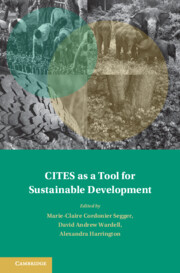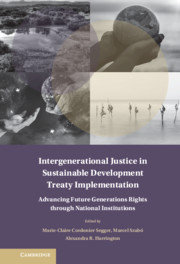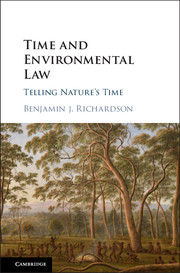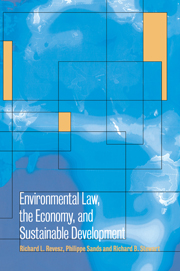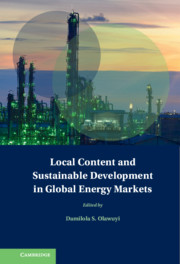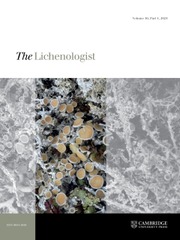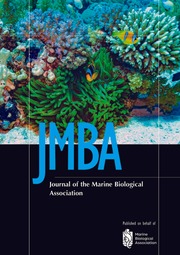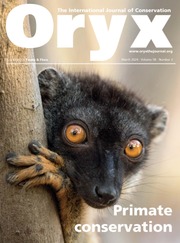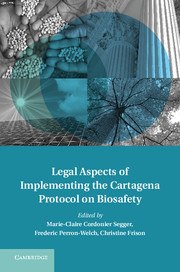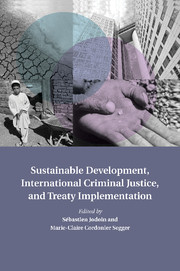CITES as a Tool for Sustainable Development
Saving endangered species presents a critical and increasingly pressing challenge for conservation and sustainability movements, and is also matter of survival and livelihoods for the world's poorest and vulnerable communities. In 1973, a global Convention on International Trade in Endangered Species (CITES) was adopted to stem the extinction of many species. In 2015, as part of the Sustainable Development Goals (SDG 15) the United Nations called for urgent action to protect endangered species and their natural habitats. This volume focuses on the legal implementation of CITES to achieve the global SDGs. Activating interdisciplinary analysis and case studies across jurisdictions, the contributors analyse the potential for CITES to promote more sustainable development, proposing international and national regulatory innovations for implementing CITES. They consider recent innovations and key intervention points along flora and fauna value chains, advancing coherent recommendations to strengthen CITES implementation, including through the regulation of trade in endangered species globally and locally.
- Provides a holistic account of the regulation of the international trade along endangered species flora and fauna value chains, to advance the global Sustainable Development Goals (SDGs)
- Reviews international and national regulatory innovations for implementing CITES, protecting species and delivering sustainable livelihoods, with supporting case studies from many jurisdictions
- Analyses links between international trade, CITES and protecting endangered species, showing the practical and theoretical applications of CITES for sustainable development
Product details
August 2023Adobe eBook Reader
9781108352017
0 pages
This ISBN is for an eBook version which is distributed on our behalf by a third party.
Table of Contents
- Part I. Endangered Species, Sustainable Development and the Law
- 1. Introduction
- 2. Origins, Evolution and Contribution of CITES to Achieving Sustainable Development
- 3. Protected Species, Global Commodities and Law for Sustainable Development
- Part II. Sustainable Development in Law and Policy on Endangered Species
- 4 . Shifting the Burden of Wildlife Protection: The Role of Extra-Territorial Jurisdiction in Implementing CITES
- 5. Analysing CITES Trade Measures
- 6. CAFTA-DR Environmental Submission Process as a Public Participation Alternative and a Way to Protect CITES-listed Species
- Part III. Global Implementation of CITES by Key Species / Commodity
- 7. Power, Profits and Policy: A Reality Check on CITES and the Prunus Africana Bark Trade
- 8. The Inclusion of the Scalloped Hammerhead Shark (Sphyrna lewini) in Appendix II of CITES
- 9. Understanding Markets to Conserve CITES-listed Species
- 10. Criminal Prosecution and Enforcement Challenges in CITES
- Part IV. Case Studies of National Implementation of CITES
- 11. Sustainable Enterprise Development: Protection of Endangered Species in Omo and Other Potential Biosphere Reserves
- 12. Biodiversity MEAs Matrix in India: Synergies, Implementation Status and Future Challenges
- 13. Tanzania's Fight against Illegal Ivory Trade: Law-Enforcement Failures and Non-Compliance with International Environmental Laws
- 14. The Impact of CITES COP 12 2002 Decision on Mahogany on Peru´s Timber Trade
- 15. Strengthening CITES Compliance: Improving the Management of Resources Preservation and Cross-Border Wildlife Trade in China
- 16. How to Reverse the Fallacy of Command-and-Control in Combatting Illegal Trade of Exotic Pets in Brazil
- 17. Lessons on Sustainable Development and Challenges to Illegal Trade: The Case of Chilean Larch
- 18. The Return of the Markhor: Why CITES Matters
- 19. New Technologies for Effective Biodiversity Governance: Lessons from Orangutans in Indonesia
- 20. Regulation of Import of Hunting Trophies of Exotic Species Into India By Framing a Look-Alike Policy to Conserve Indigenous Wild Fauna
- 21. Legislation for the Control of the Timber Trade in the Democratic Republic of Congo and the Congo Basin
- 22. Sustaining the Global Frankincense Trade through CITES: Governance Challenges and Complexities
- Part V. Emerging Issues and Synergies for CITES in the Context of Sustainable Development:
- 23. Sustaining Commercial Marine Fisheries for This Generation and Future Generations Using CITES Appendix I and II for Trade Traceability
- 24. CITES as a Tool for Monitoring and Adaptive Management
- 25. Linking Global Processes: Institutional Interplay and the Global Sustainable Development Agenda
- 26. Trade and Zoonotic Diseases
- 27. The Convention on Biological Diversity (1992) and other Biodiversity Conservation Regimes: Looking through the Lens of Synergy and an Ethical Shift
- Part VI. Conclusions
- 28. New Directions for Law and Policy on Sustainable Development in the Context of CITES and Endangered Species.

